Before abortion was legalized in Nepal in 2002, “up to one-fifth of incarcerated women were convicted of abortion-related crimes” and “more than half of maternal deaths during the one-year study period [was attributed] to abortion-related complications.”
That was according to Wu et al. in Abortion Care in Nepal, 15 Years after Legalization: Gaps in Access, Equity, and Quality. Here’s the whole paragraph:
Up to one-fifth of incarcerated women were convicted for abortion-related crimes. Despite the restrictive laws and legal implications, many un-safe abortions were still performed by untrained providers throughout the country. Government data from 1998 indicated that 54% of gynecologic and obstetric hospital admissions were due to unsafe abortions. Data from one hospital-based study attributed more than half of maternal deaths during the one-year study period to abortion-related complications. [Emphases mine.]
In other words, when it came to terminating unwanted pregnancies and/or mishaps during pregnancy the consequences were often dire for them.
According to Abortion in Nepal: Women Imprisoned, because abortion was criminalized, whether intentional or not, alleged perpetrators was jailed. The report starts with the story of a 21-year old, illiterate, poor, rural woman serving life sentence for allegedly aborting her four-month fetus, when in reality she had had a miscarriage. The reports details why the blanket — yes blanket — ban on abortion is a violation of human rights of women, which I agree with. The miscarriage (excuse the pun) of justice when it came to applying and enforcing the law affected the illiterate, poor, rural women the most.
Legalization of abortion has brought visible changes to the lives of women in the country.
Abortion and Unintended Pregnancy in Nepal, a fact sheet (based on results published in Abortion Incidence and Unintended Pregnancy in Nepal) ascribes the very sharp drop in maternal deaths per 100,000 live birth from 580 in 1995 to 190 in 2013 to the law. In other words, the law has saved actual lives, among other things.
I understand we are still really far behind with dissemination of information about the law and access to safe and legal abortion. The level of unsafe abortion in 2014 was still worryingly high at 59%.
And then…a very conservative pro-life Christians, like Pastor Soman Rai and their organization Voice of Fetus Nepal come along, in 2009, and is threatening to help undo many of those gains.
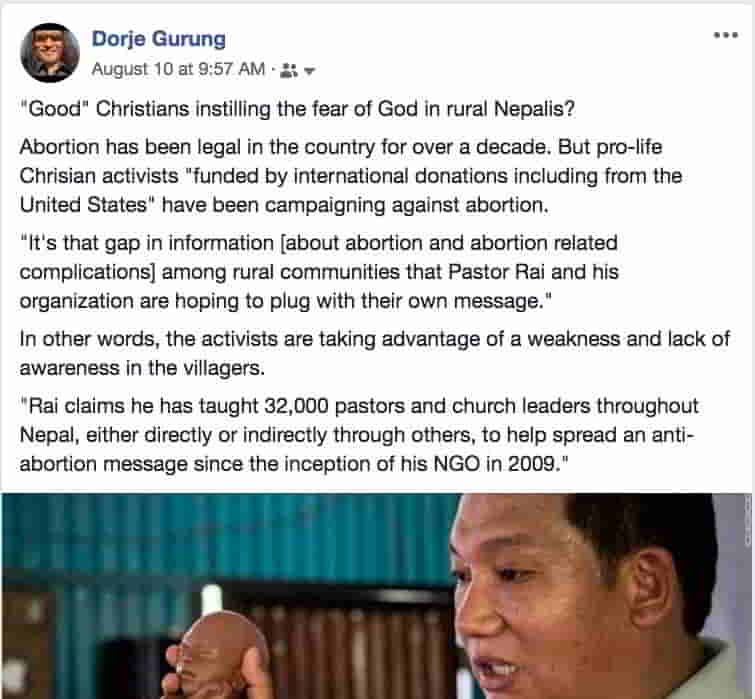
Along with their like, Doctors such as the one I had a long exchange under the above post about abortions also walk the corridors of hospitals in the country.
Here’s the exchange. Incidentally, re-reading the exchange, I must admit I may have been a little too hard on him!
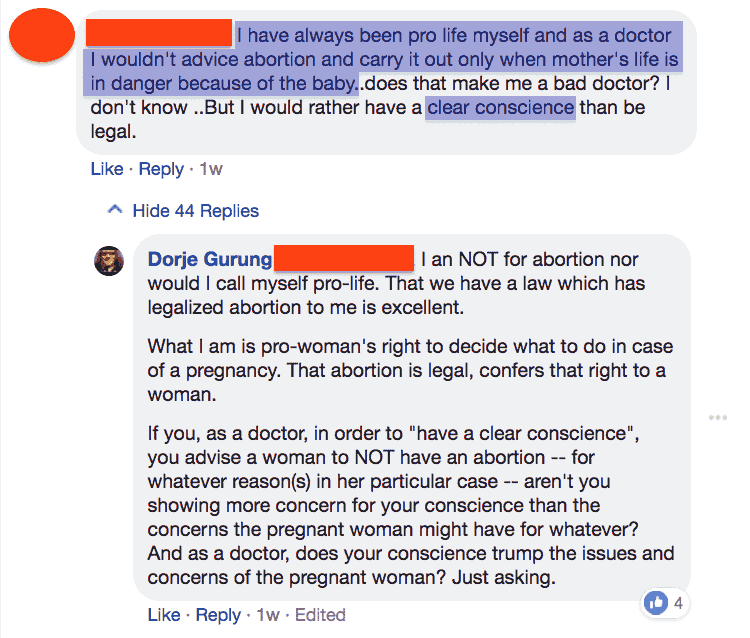

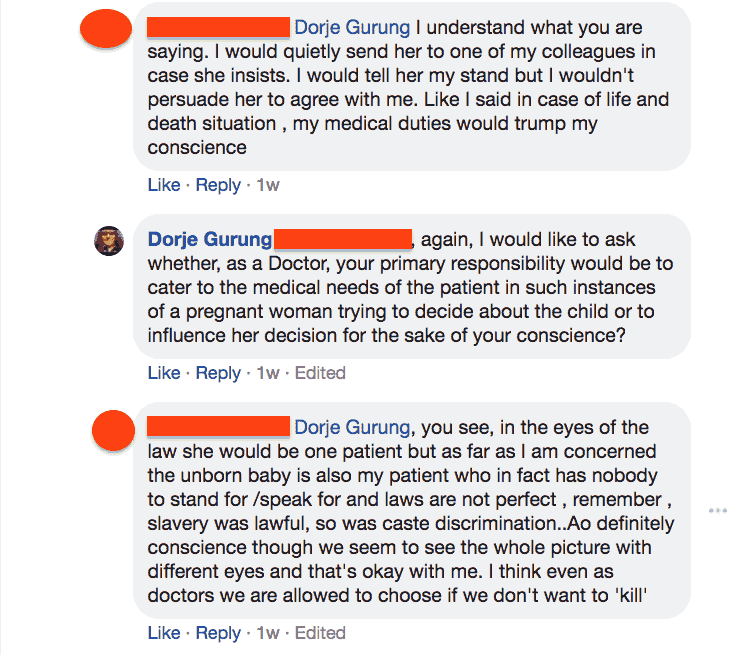
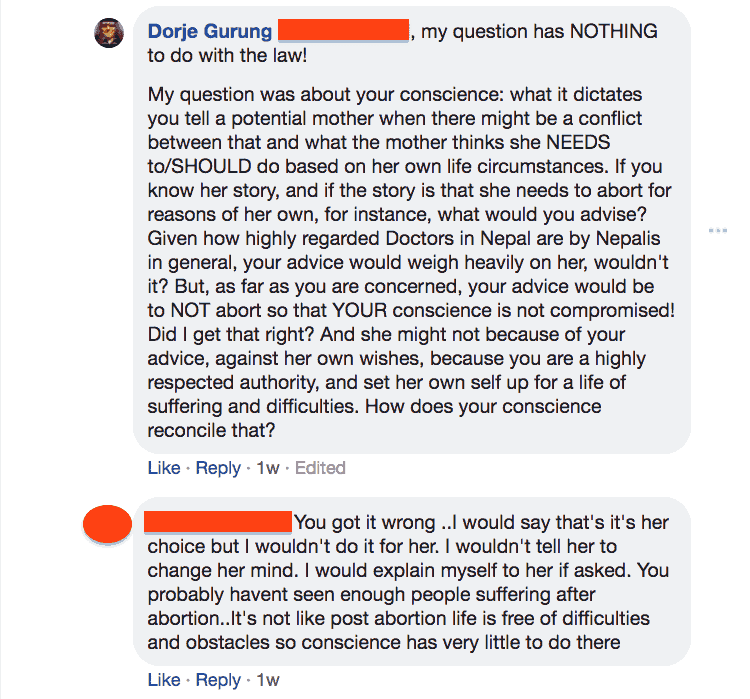
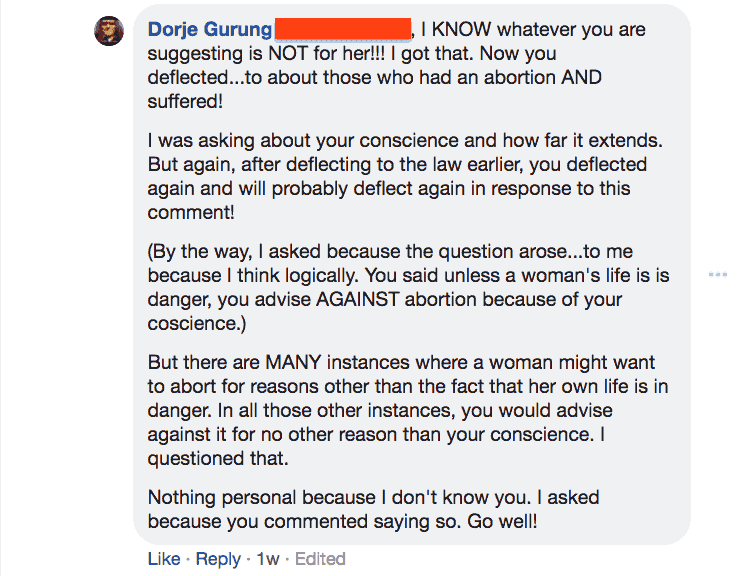
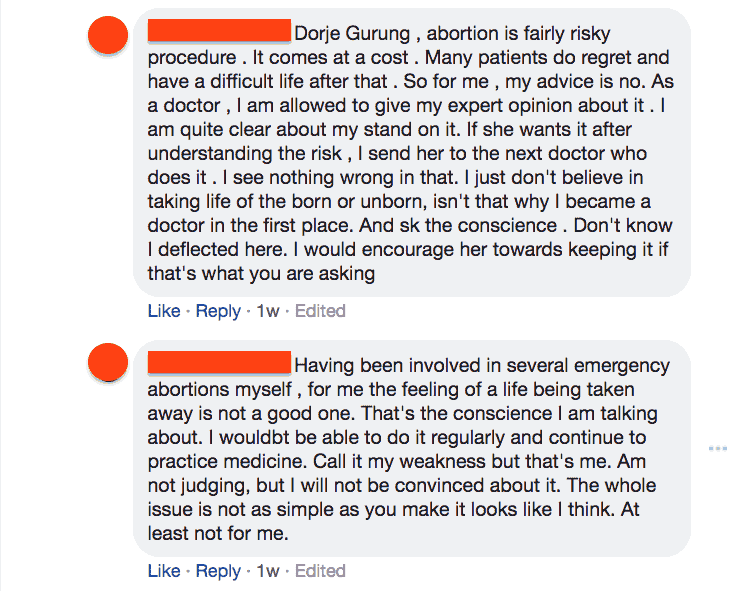
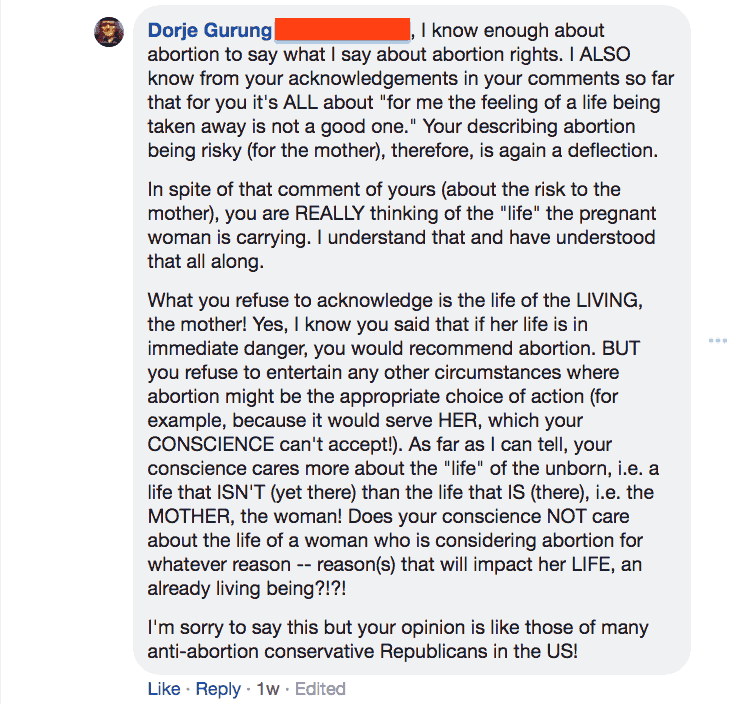
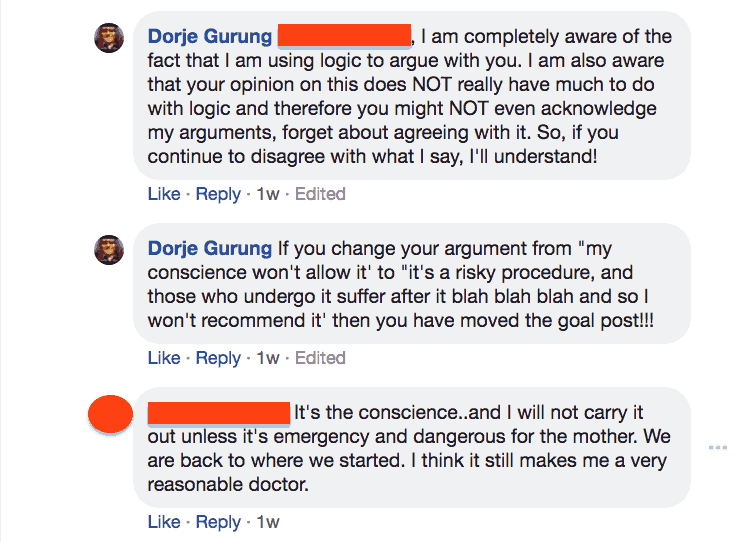
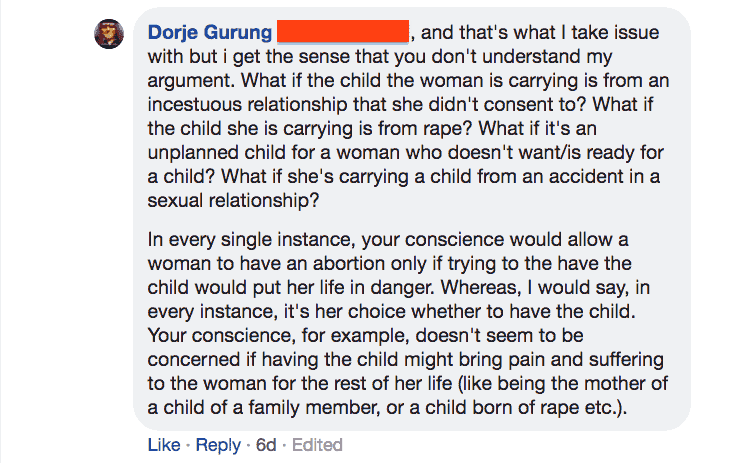
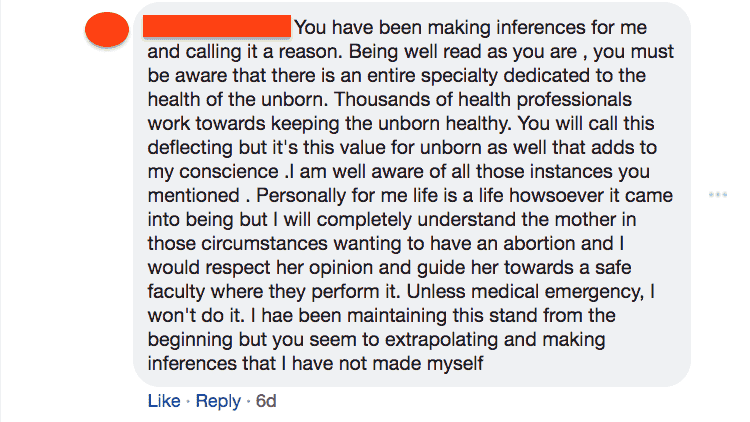
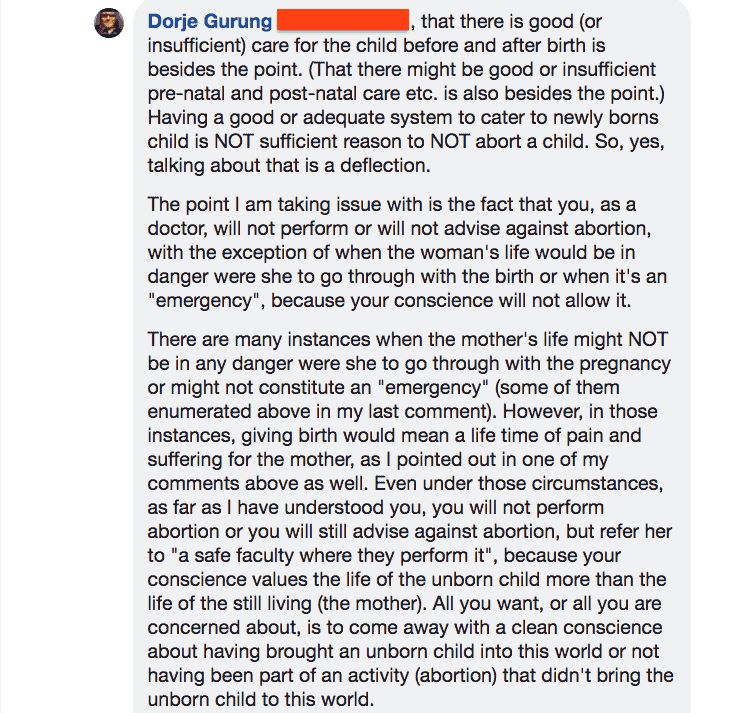
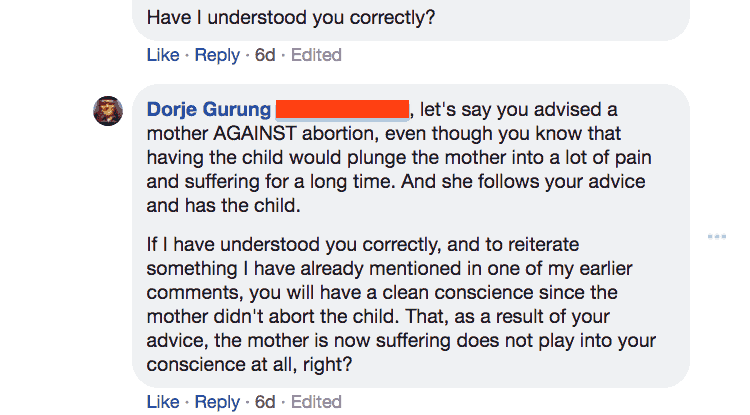
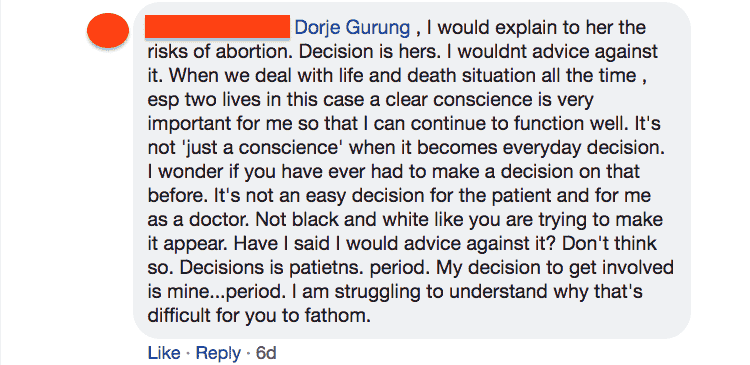
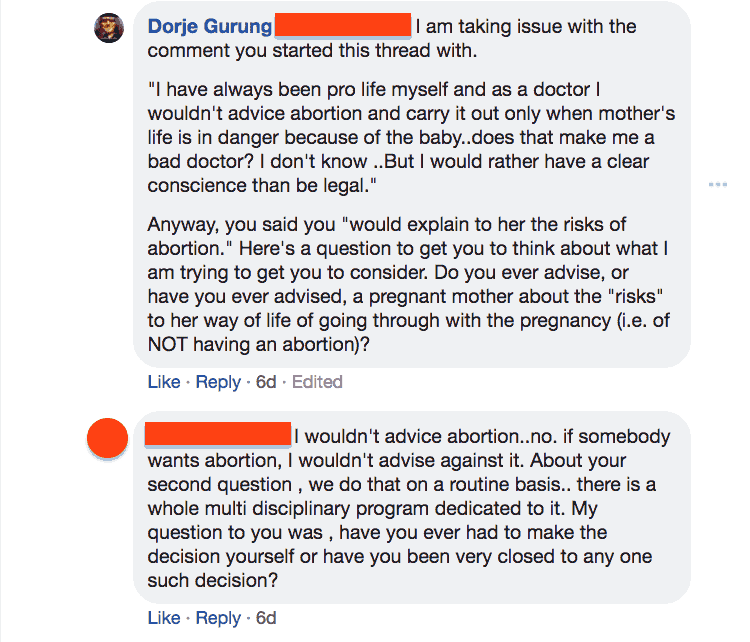
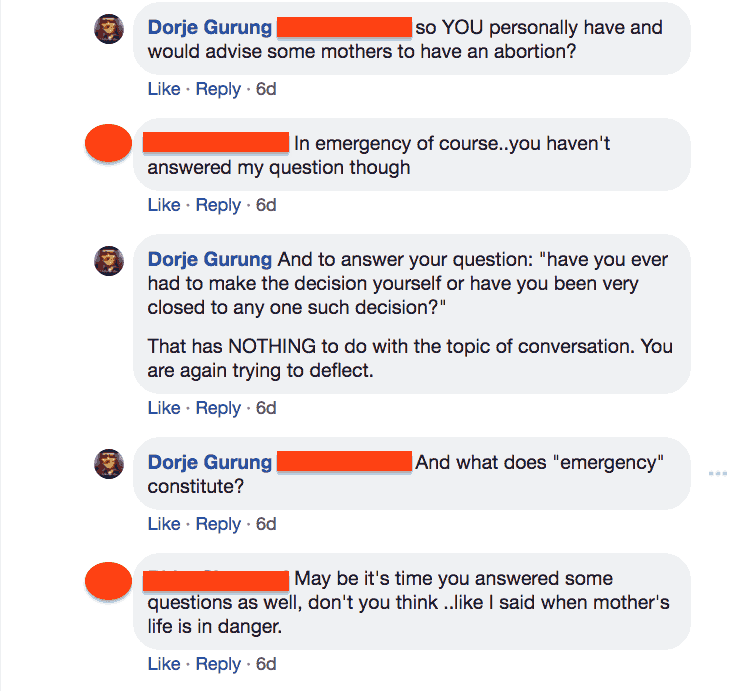
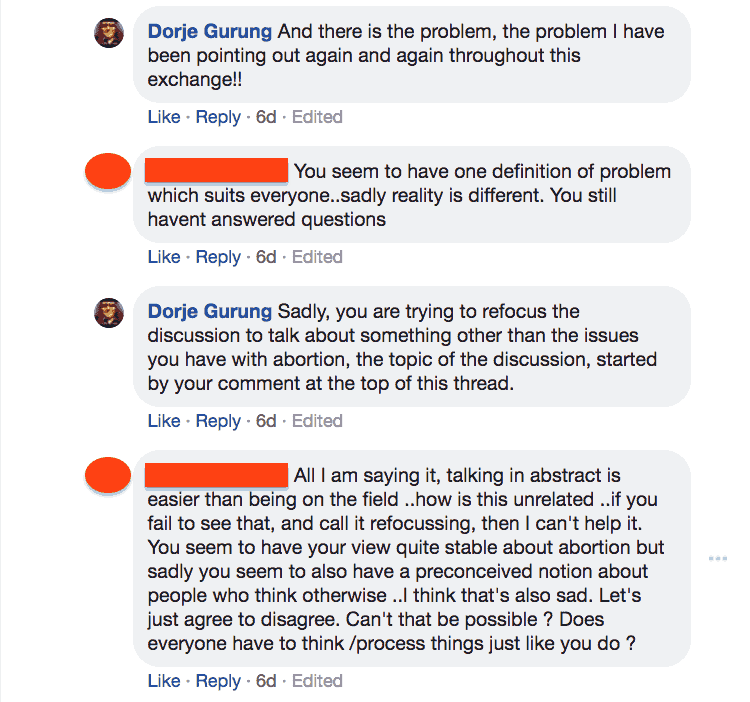
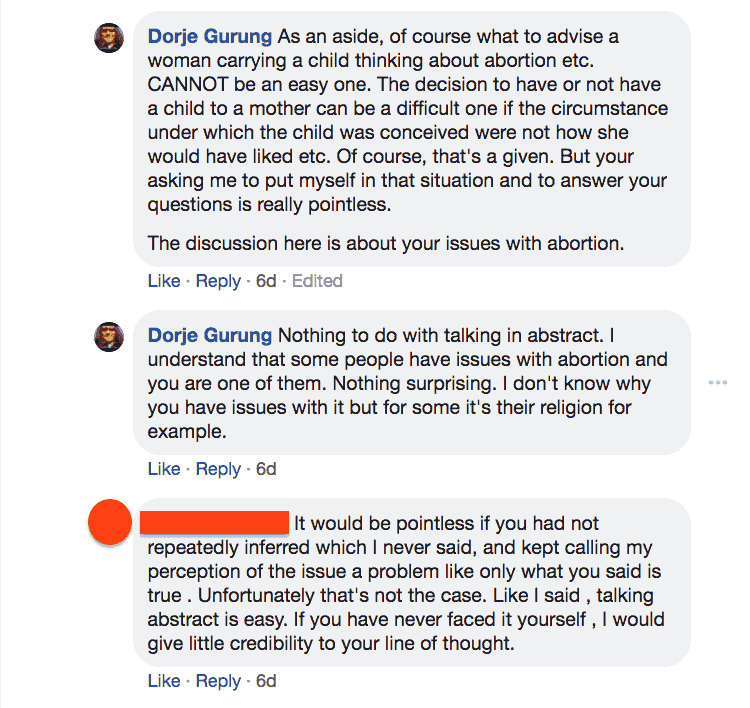
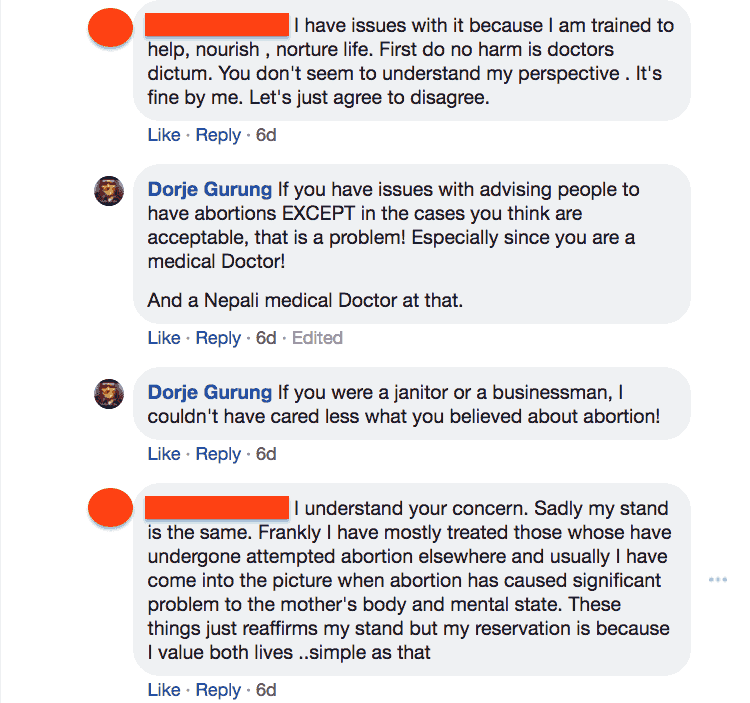
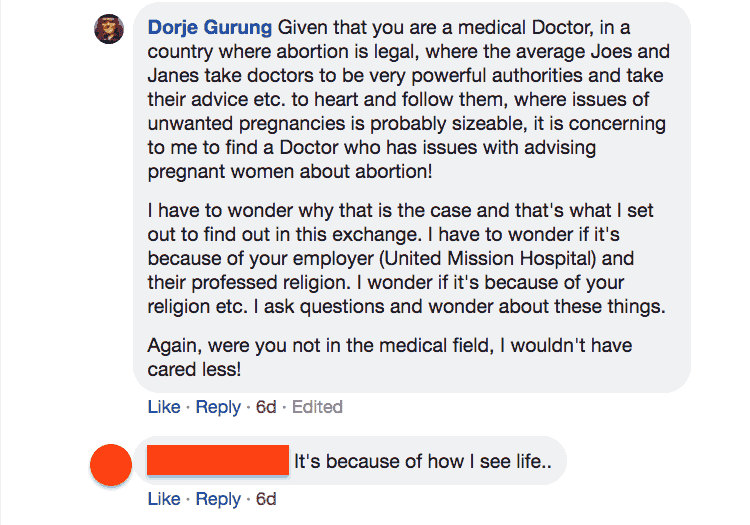
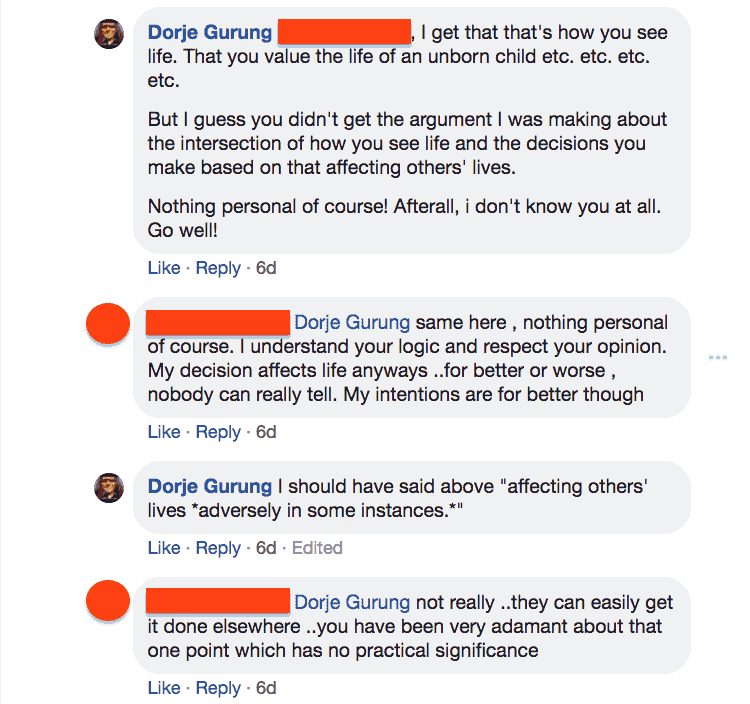
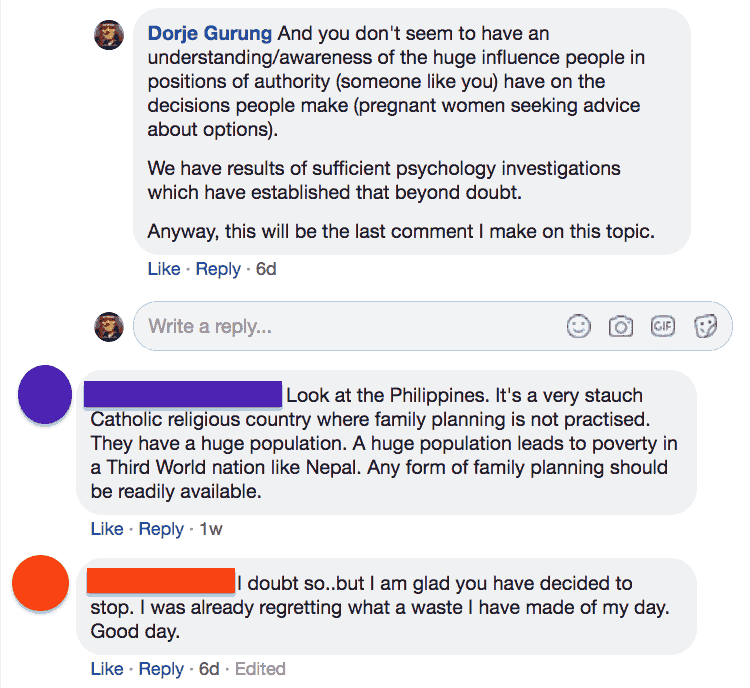
According to his Facebook profile, he was trained at Christian medical institutes and works at a hospital run by a Christian organization.
I suspect he is a conservative Christian. Were it not for his employer, United Mission to Nepal (UMN), I wouldn’t have been too concerned about the exchange. UMN is a Christian organization. Their mission reads thus:
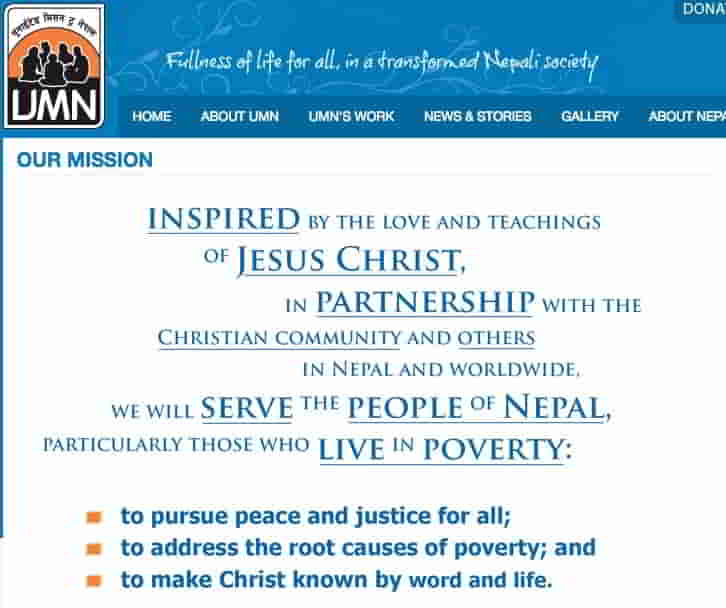
And they run hospitals in the country. I would be surprised if this Doctor’s beliefs are the exception at UMN hospitals in Nepal. Given the mission of UMN, I suspect most — if not all — of their medical practitioners are pro-life, conservative Christians too. Additionally, one of the pre-requisites for employment in their hospitals is likely pro-life, conservative Christian. Of course, I don’t know either of that for a fact. But, if so, these hospitals are likely also contributing to the issues women with unwanted pregnancies face.
I cannot even begin to imagine the level to which a woman feels conflicted when, for one reason or another, needing to consider aborting a pregnancy.
The level of mental, emotional, and psychological anguish and torture she must endure…I simply can’t imagine! Then there is the stigma associated with aborting a fetus.
The CNN article, quoting Shreejana Bajracharya, Media and Communications Manager for Marie Stopes Nepal, the family planning and abortion provider, says “This issue (of pro-life activists) has stigmatized safe and legal abortion in the communities. The stigmatization of abortion has created discrimination among women seeking abortion and service providers providing safe and legal abortion services[.]”
And yet the pro-life Pastor and his 32K activists and the pro-life, conservative Christian UMN hospital medical Doctor probably don’t recognize any of that, blind as they are to the need of their own “conscience” and the narrow dictates of their religion.
What do you think?
* * * * * * * *
References
Guttmacher (Feb. 2017). Abortion and Unintended Pregnancy in Nepal, a fact sheet (based on results published in Abortion Incidence and Unintended Pregnancy in Nepal. “Nationwide, fewer than half (42%) of all abortions were provided legally in government-approved facilities. The remainder (58%) were clandestine procedures provided by untrained or unapproved providers or induced by the pregnant woman herself.”
BJOG (April 10, 2013). Unsafe abortion after legalisation in Nepal: a cross‐sectional study of women presenting to hospitals. “In all, 234 (44%) women were aware that abortion was legal in Nepal. Medically induced abortion was used by 359 (68%) women and, of these, 343 (89%) took unsafe, ineffective or unknown substances.”
Health and Human Rights Journal (June 2017). Abortion Care in Nepal, 15 Years after Legalization: Gaps in Access, Equity, and Quality
CRLP & FWLD (2002). Abortion in Nepal: Women Imprisoned. “This report documents human rights violations arising from the criminalization of abortion in Nepal and finds that the government has breached its duties under inter-national law. The report analyzes violations inherent to the abortion ban itself, as well as those that arise from enforcement of the law. Based on a fact-finding mission conducted by the Center for Reproductive Law and Policy (CRLP) and the Forum for Women, Law and Development (FWLD) in Nepal in March 2001, this report exposes the government’s denial of Nepali women’s right to safe and legal abortion and its violation of the rights of criminal defendants who are prosecuted under the abortion prohibition.” […] “Unsafe abortion accounts for at least half of all pregnancy-related deaths.”
Harper Bazaar (Jan. 2020). Michelle Williams’s Speech Is a Reminder to Stop Expecting Women to Regret Their Abortions. “Most women who have abortions don’t regret them. And that’s not just anecdotal. A 2015 study that examined hundreds of women who received abortions found that 95 percent reported feeling they’d made the right decision. Seemingly, there is nothing more enraging to anti-choicers than that—except maybe those who talk about it.” [Added Jan. 22, 2020.]
Human Rights Watch (June 13, 2022). Recognized Yet Limited: Abortion Rights in Nepal. [Added June 27, 2022.]
